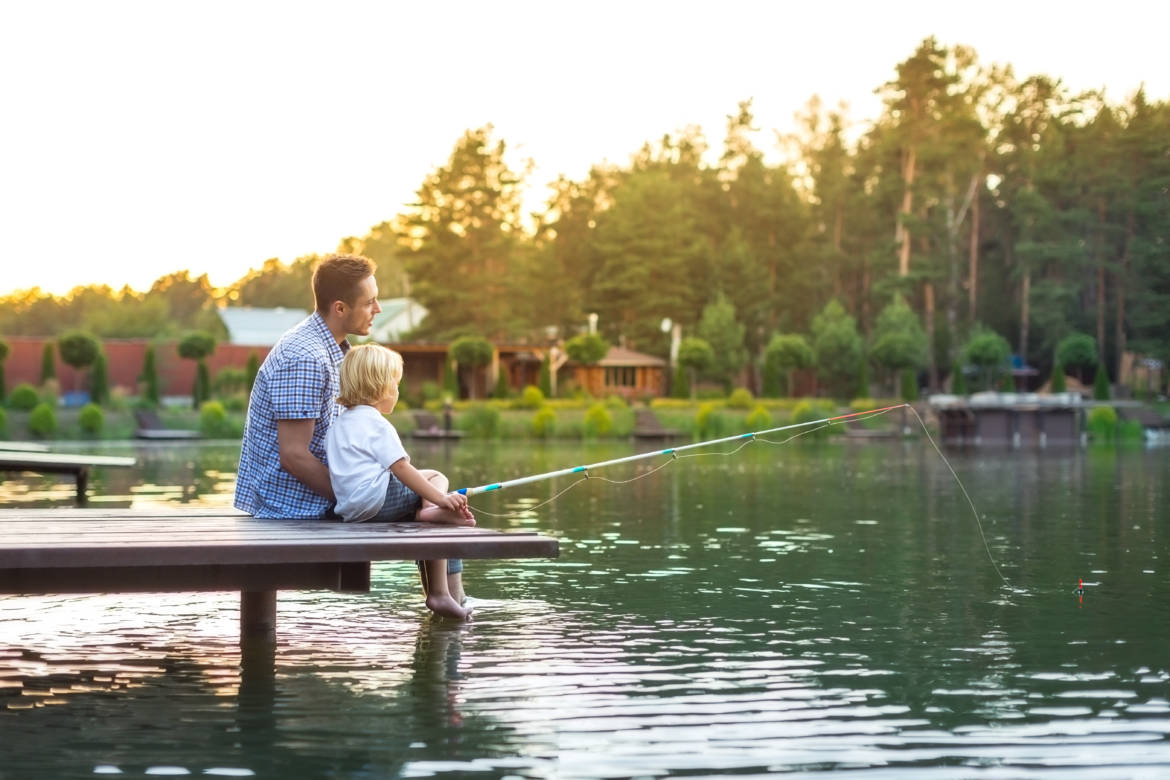8 Tips for Buying a Vacation Home

Summer is here, and for many of us, vacation is right around the corner. If planning your vacation feels overwhelming- finding the right destination, the perfect rental or hotel, making sure to pack everything you need- you might be starting to think about purchasing a vacation home. However, if you’re not prepared, you might find that buying a vacation home could be just as stressful for you and your family.
Reference the below list for some tips to consider before making your purchase.
1. Location, Location, Location
There are many options to consider when deciding on the location for your vacation home, and foremost is the type of area you’re going to be looking in. According to data collected by the National Association of Realtors in 2018, 33% of vacation buyers purchased in a resort area, 24% in a rural area, and 18% in a small town. What type of vacation you want depends on your personal taste. Look for places where home prices are appreciating, so that you don’t have a problem when you go to sell the property in the future. If it’s an option, you might want to try renting a place in the area first to see how you like it. You might even consider visiting during several times of the year, to see how the area is during all seasons.
It’s usually best to avoid buying outside the country as well. You will find varying rules of homeownership depending on the country, and this could increase the risk of your investment. If you do want to buy overseas, make sure to do plenty of research first and brush up on all laws regarding title and ownership there.
2. Create and Stick to a Budget
Before you purchase your dream vacation home, make sure it’s something you can afford. You could always transition to a bigger home in the future. Remember that this vacation home should be a luxury, not a new cause of anxiety! This step shouldn’t be too difficult. There are plenty of mortgage calculators available online. As long as you know your income and liabilities, you should be able to calculate what your loan will be. You should generally expect a 20 percent down payment, which could be quite large depending on the property and location.
In addition to the loan, you’ll need to factor in other costs for maintaining the new home. At the very least, your budget should include utilities, maintenance, insurance, and taxes. For maintenance, you might want to talk to other residents to understand what’s required. For the taxes, don’t make the mistake of assuming they will be the same as your primary home. Property taxes could be higher in the area you’re purchasing, and the implications may be different because it’s a second home. The good news is that there are also tax benefits to owning a second home. For example, did you know the taxes on your second home can be claimed as a deduction? Be sure to read up on all the applicable tax breaks for second-home owners to see if you qualify. You should also talk to your realtor for details about taxes and maintenance tips for the area.
3. Upkeep on Your Second Home
Without a doubt, you will need to have a plan for maintenance on your property. This could include painting the walls, mowing the lawn, or fixing the plumbing. As mentioned above, it’s important to have an idea of your financial commitment for these tasks both when you’re at the property and when you’re away. Doing some of this maintenance yourself will save you some money, but you’ll also need to hire someone to take care of it when you’re unable to. Understanding the location will help you to understand all the upkeep that will be required, such as if there could be flood damage or how often you’ll need to clean the gutters. For maintenance on your plumbing, electrical, appliances, heating/cooling, and more, purchasing a Choice Home Warranty will help save you time, money, and stress down the road.
4. How You Will Use the Vacation Home?
This is something you’ll need to understand to inform your decisions throughout the purchasing process. How often will you honestly visit? Monthly, quarterly, annually? Your answer should be enough to justify the price. Are there others who would be able to use it? The ability to loan out the house to family, friends, or coworkers might be another reason to consider buying. Understanding the answers to these questions should help you to avoid a purchase you’ll later regret.
And what about when it’s not in use? You’ll need to decide whether you plan to rent out the property whenever you’re not using it. If the answer is “yes”, there are a host of other considerations to keep in mind. Which brings us to…
5. Have a Realistic Rental Plan
It’s important not to view your vacation home solely as an investment. Many experts will tell you that there are better investment options available than purchasing a second home. That being said, if you do plan on renting out the property, you will want to think carefully about your business plan. You should be conservative in your expectations of rental income. It’s unlikely you’ll be able to find renters throughout the entire year. Consider speaking with local rental agencies about the seasonal demand.
There are a few different routes you could explore for your rental business plans. Nowadays, there are a variety of do-it-yourself online services available, such as Airbnb, Vrbo, and Flipkey. You might also consider using a rental program or hiring a local management company. Whatever you choose, you’ll also want to advertise; at the very least, you’ll need appealing photos of the finished residence. Keep in mind that all these costs, along with routine maintenance, will cut into your rental income. You will also need a system for taking payment (such as an online service like PayPal), and a safe way for them to enter the residence (there are many keyless entry systems available).
6. Be Wary of Timeshares and Joint Investments
You may be looking into other forms of ownership. One example is a timeshare. While these situations do work out great for some people, you’ll need to carefully review the agreement before investing. Make sure to understand the full financial commitment and the amount of time you’ll be allowed to spend at the property throughout the year. You may also run into difficulties down the road when trying to sell a timeshare, which often leaves owners in a dire situation.
Bring the same level of care when discussing a joint property investment. For many families, this could be a perfect arrangement to save costs all around. However, disagreements on buying, selling, rental plans, and usage could often lead to emotional conflict amongst these family members. Ensure to settle in writing the exact percentages of ownership and responsibility between all investors, as well as what usage that partial ownership guarantees, before entering into any joint investment.
7. Take Your Time
Some of you may be reading this because of a proposal brought to you by an investor or someone you know. This may include lots of promises, guarantees, and a sense of urgency. Don’t let this prevent you from doing your due diligence before making a decision. The person presenting this offer might be someone you trust dearly, but that doesn’t mean they have done all the necessary research.
Purchasing a second home can be a very exciting time, but be sure not to make any hasty decisions. Slow down, relax, and consider all potential concerns and options. Remember what’s important for you and your family, and don’t be afraid to pass on an imperfect deal.
8. Work with a Qualified Real Estate Agent
This might be the most important thing here to remember. So you’re organized, you’ve done your research, you know all the questions to ask- but what about the questions you didn’t know to ask? A good local real estate agent will know those questions and more. Whether you’re buying a beachfront house or a small mountain cabin, your local real estate agent is the one that will help turn your perfect vacation vision into a reality. A qualified agent should know where in town to turn to for all your routine needs, what taxi services to use, what to expect during every season, and the areas you should avoid. Be sure to read reviews and ask around for the top agents in your area. Making the right choice could potentially save you thousands of dollars on your second home, and priceless amounts of headaches in the future.




